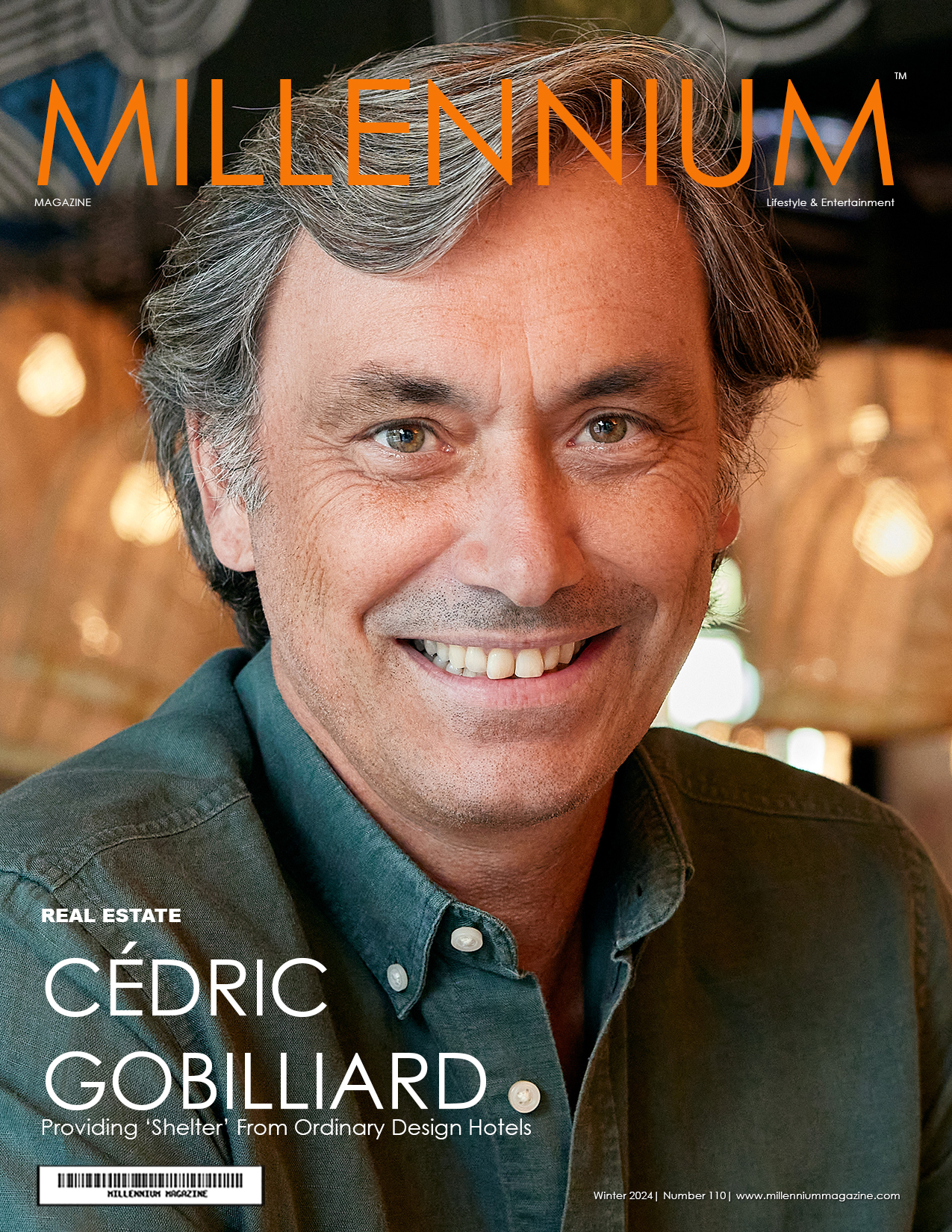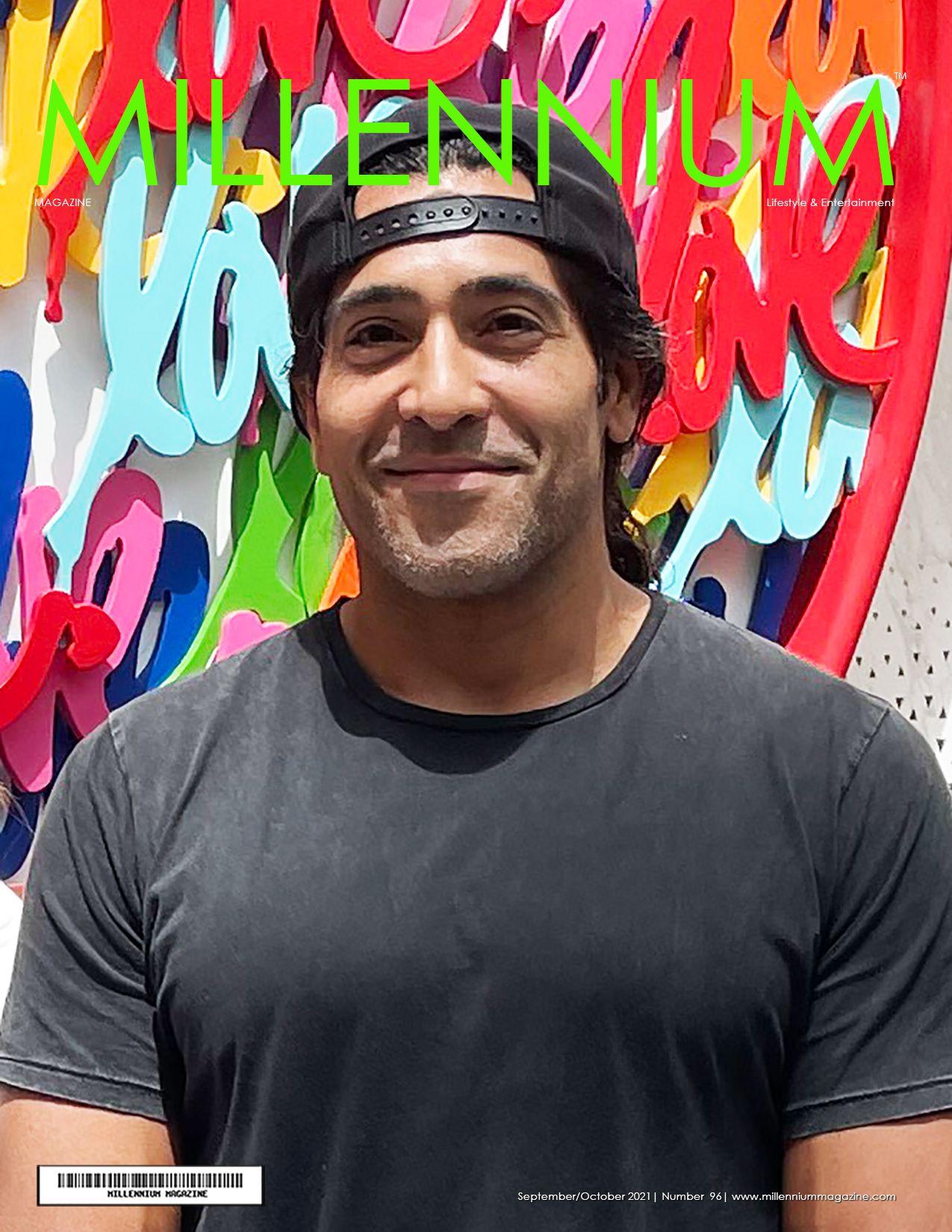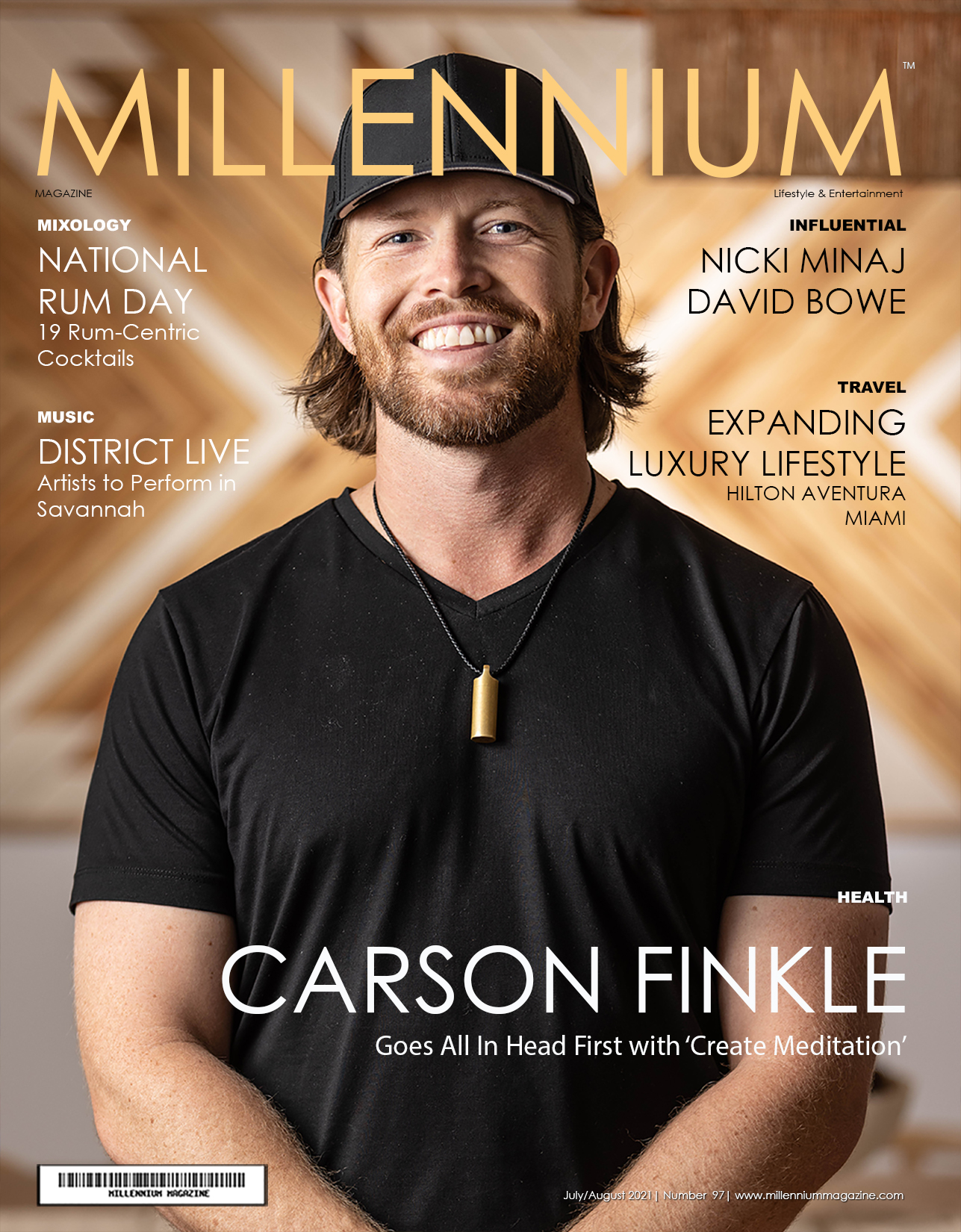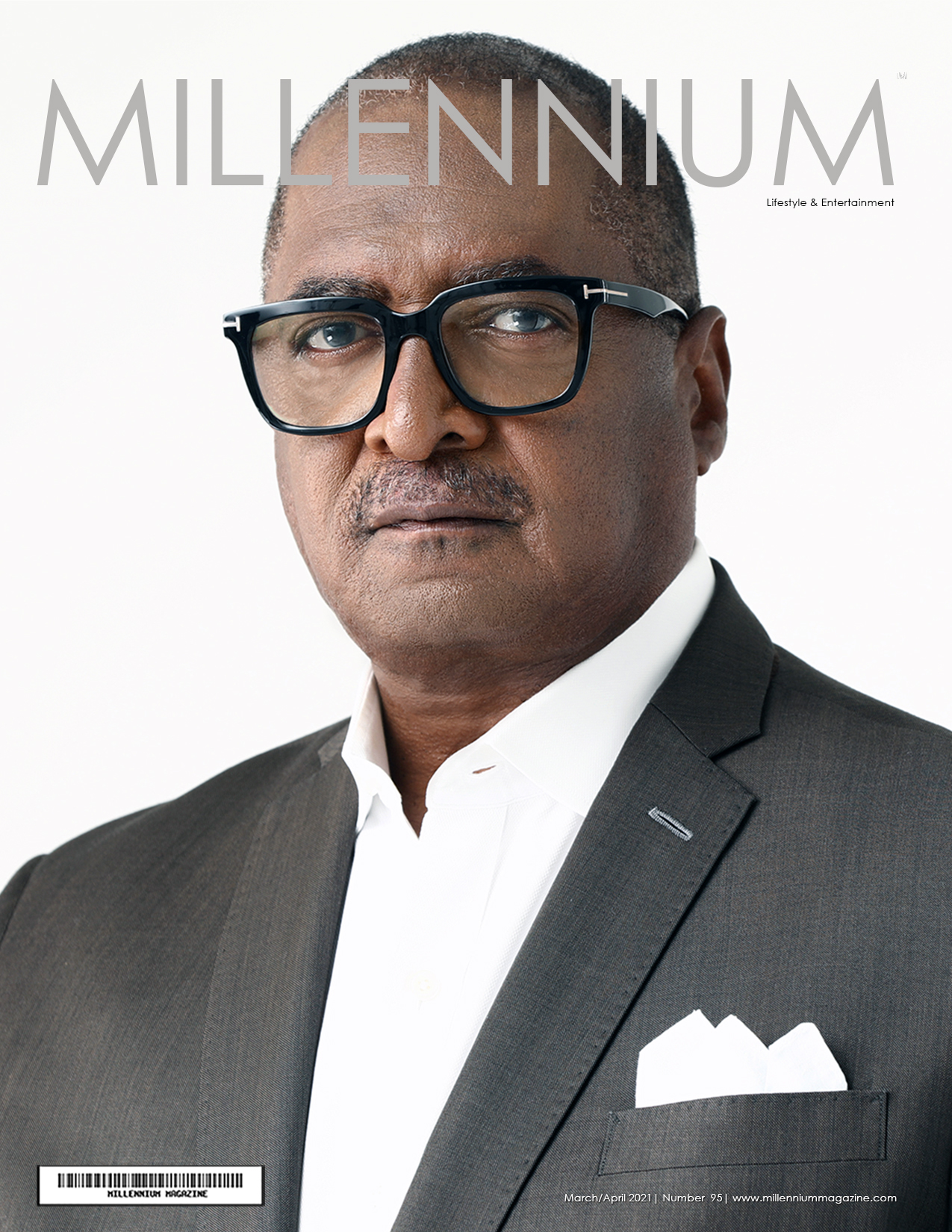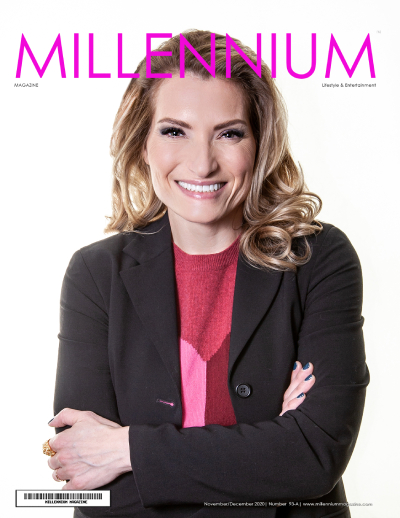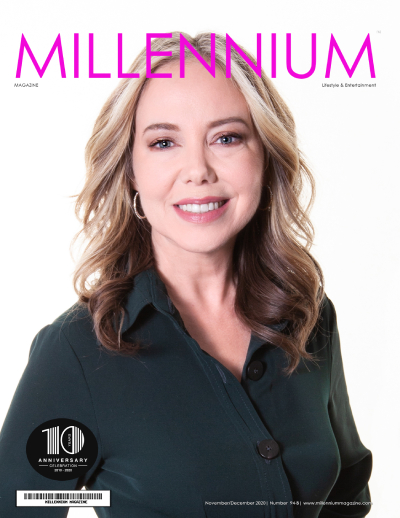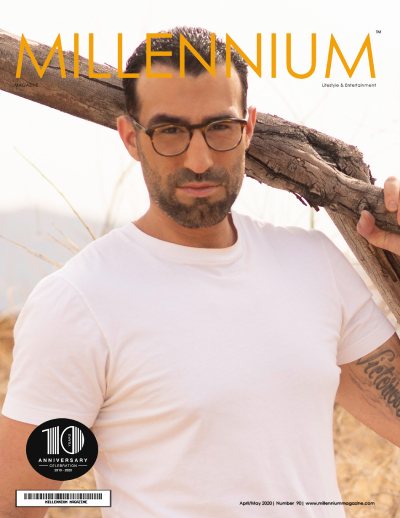
Israel transcends its status as an epicenter of world history and culture as it is a multifaceted destination with something to offer every kind of traveler. This makes it a natural choice for a conference or corporate retreat that will bring together people from all backgrounds and tastes. It’s also significant to note that many of Israel’s newest resources were put to good use to upgrade the visitor experience, including those highlighting the natural resources that helped settlers in the 20th century build the modern nation. During the pandemic, cutting edge-inventions, innovations, and ideas were integrated into long-standing and expanded attractions. Newly open attractions, meanwhile, expand the scope of Israel’s history and cultural imprint on the world.
While Jerusalem, Tel Aviv, and Haifa feature distinctive hotels and restaurants nicely suited for different business functions, the Dead Sea and the Negev areas are at once remote yet accessible from Tel Aviv given the country’s compact size. Higher-end resorts combine distinctive meeting spaces, outstanding food and mixology, admirable sustainability objectives, and only-in-Israel cultural and adventure experiences while factoring out the distractions of larger cities.
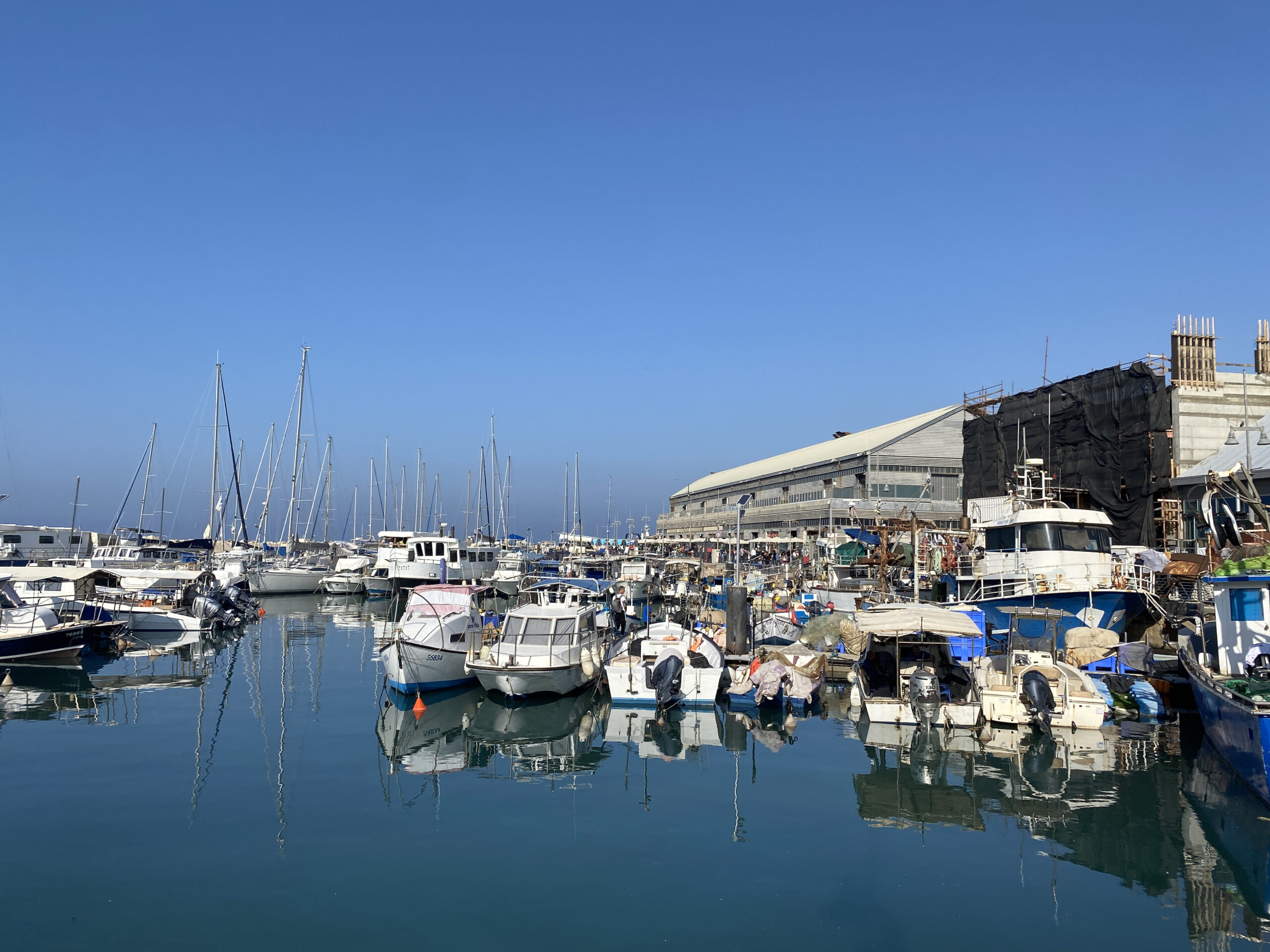
Here’s a small sampling of fascinating destinations and activities event planners and companies when considering Israel as a destination for an international conference or retreat:
What’s New in the Old Town(s)
Although Jerusalem’s historic neighborhoods will never get old, technology and accessibility are infusing them with new excitement. During the pandemic, the Ramparts Walk/Walls Promenade was recently enhanced with 3-D printed “bronze” statues immortalizing key events in Old Jerusalem over the past 2,000 years. The addition of QR codes next to the statues figuratively and literally brings this interesting cast of characters to life. For example, “General Edmund Allenby” provides an animated first-person account of how his troops ended the Ottoman Empire occupation in 1917 and gained control of Jerusalem. The trip back in time continues through “conversations” one person or a group can have with key players among the Crusaders, Turks, Jordanians, Arabs, and Jews who occupied the city through the centuries.
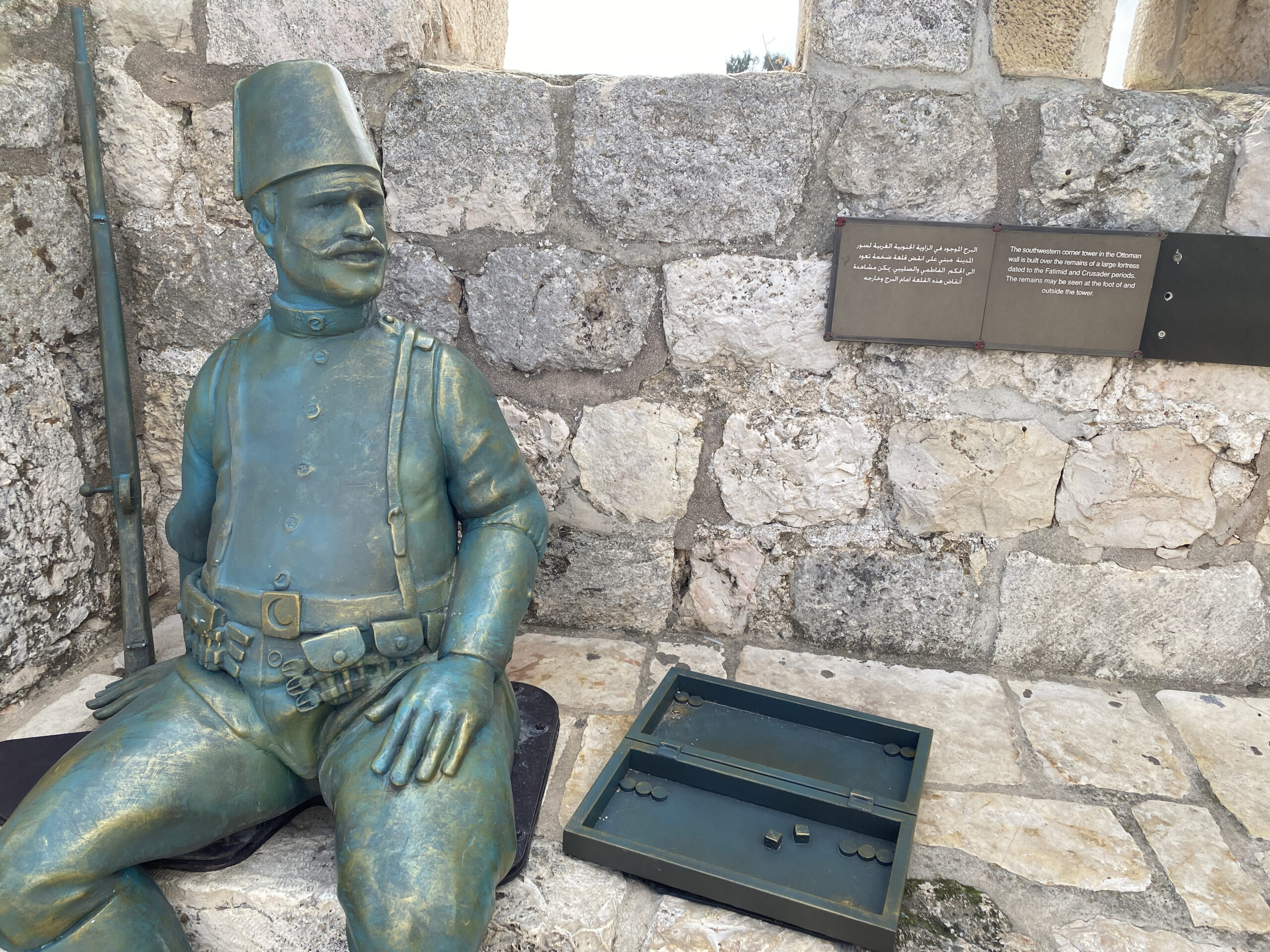
Right around the time the historic figures took up residence along the Ramparts Walk, and a small theater playing an introductory film about the Ramparts was installed, the local government was building a series of ramps empowering those with physical disabilities to experience Old Jerusalem in ways they couldn’t before. Any planner scheduling an activity will have peace of mind knowing that great care was taken to preserve the architectural integrity of old Jerusalem during the process of making it more accessible than ever. Ramps and improved infrastructure provide greater access at the ground level, and other restoration projects in the Jewish Quarter are also being “perfected.” Renovations to the sites of Tiferet Yisrael Synagogue, The Herodian Mansion, and the Davidson Centre, will make them safer and easier to explore.
While watching the faithful worship at the Western Wall (a.k.a. The Kotel) is an always inspirational site, the Western Wall Tunnel Tour is overseen by the Western Wall Heritage Foundation–including the new “Bridge Route”– brings extra historic and scientific context to the monument and its story.
“I always tell my students that you need a developed imagination, (as) it’s more than just a pile of rocks,” says Nachum Applebaum, historian and academic who is one of the organization’s key players. “Each level down represents increasingly earlier historical eras, including King Herod and the Romans.” Viewing the archaeological finds at every stage of history can be further enriched with a visit to the Chain of Generations Center, which provides a state-of-the-art virtual journey of Jewish people throughout the generations, from the time of Abraham through today.
Much of the Museum of Islamic Art, tucked away in a residential section of Jerusalem, is dedicated to the history of the intricate designs, patterns, and artisanal techniques that continue to be embraced and adapted throughout the world. However, it also has the distinction of having a museum-within-a-museum. In the form of a gallery housing a spectacular collection of rare watches and clocks amassed by Sir David Lionel Salomons in the early 20th century. As many executives and professionals have one or more painstakingly crafted “investment” watches, they can certainly appreciate this collection of tiny, technically-impressive artworks spanning the 18th and 19th centuries by French master Abraham-Louis Breguet and his peers.
The First Station, one of Jerusalem’s trendiest developments, is a perfect first-day or first-night place to get one’s bearings, with its mix of bars, fast casual restaurants, and street food offerings, shops, fitness activities, and a site for fine and performing arts events. At its heart is Adom, which still holds its status as one of Jerusalem’s most imaginative fine dining spots after nearly two decades under the direction of chefs Moti Davis and Elran Buzaglo. While the menu was simplified during the pandemic, what remains is delicious and utterly sharable, particularly the Fish Masabbaha, Fish Ceviche, and Chicken Liver appetizers.
Generally, planners can never be wrong when they are booked at the historic King David Hotel or the still architecturally ground-breaking Mamilla Hotel, especially with dining options and prime location. However, it’s always fun to get away from big hotels and into immersive dining experiences. Culinarium and Eucalyptus, both tailor-made for group dining outings, specialize in Old Testament-inspired tasting menus for 21st-century diners that reflect some of the most beloved comfort food dishes that are truly ageless. At HaMotzi, “family style” dining gets a personal touch from owner Avy Levy, who blends his showcases his Israeli-Algerian roots through his rethinking of family recipes, and pretty much all of the Mamilla Hotel’s restaurants.
The Mache Yehuda Market in Jerusalem remains a bottomless treasure trove of specialized eateries doling out the big flavor, memorable presentation, local color, and the best Middle Eastern and Eastern European foods not widely available in other continents. Jahnun Bar specializes in vegan and vegetarian Yemenite wraps and sandwiches that are so satisfying nobody will miss the meat filling. The “memulawach” starts with the show of watching the cook on duty heat up the malawach (the love child of a flour tortilla and a croissant) before you mix and match fresh vegetable fillings, hummus, zhug (a spicy green herbal concoction), and pepper hot sauces. If you’ve ever wondered about what Georgian food is like, have it for breakfast or brunch at Hachapuri in the form of khachapuri, a rich bread boat filled with cheese, egg, butter, and a mix of earthy seasoning. If a no-nonsense Israeli craft beer experience is on your attendees’ wish list, plan a night-time jaunt to Beer Bazaar to order pints and flights from the Eilat-based producer.
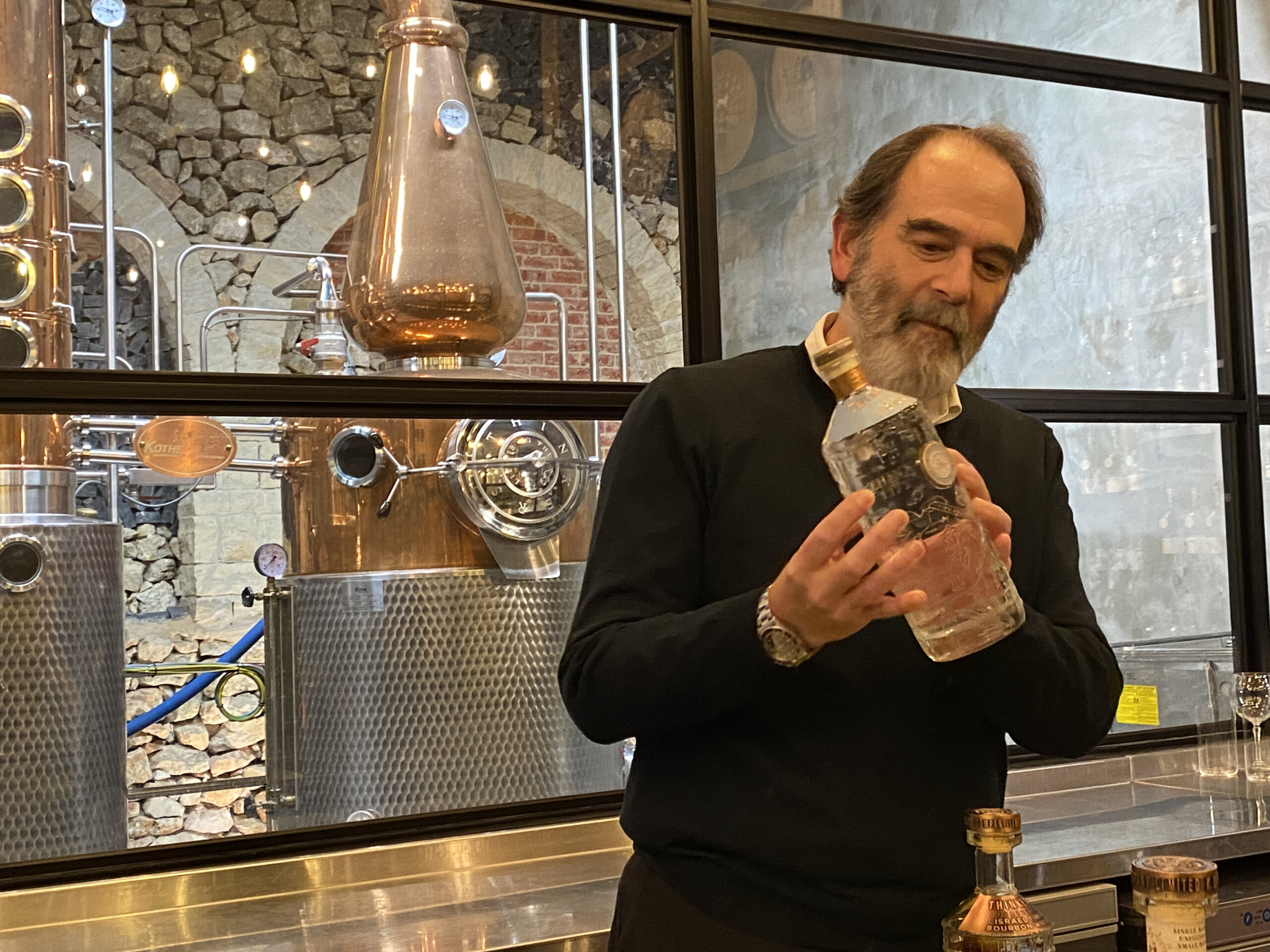
Sweets also abound along the interior and exterior streets of Machane Yehuda. Although filled and iced donuts reign as the pastry of the moment, dessert enthusiasts should pop into Marzipan Bakery. The local institution has delighted customers with its chocolate and cinnamon rugelach (a rolled pastry whose origins trace to Polish Jews) for decades…so much so that the hallowed brand is imported to kosher markets across the U.S. Of course, there’s something to be said for trying these bites fresh from the oven at the source as well as sampling its other pastries. Gustel’s chocolates are available boxed for giving at its Machane Yehuda shop.
The wife-and-husband-owned and operated Thinkers Distillery, a few minutes up the street from Machane Yehuda, is a must for cocktail enthusiasts, not only for its sublime spirits but for its beautiful environment and tasting experiences (perfect for small business groups), some of which incorporate fresh cheeses, bread, and other snacks from the market. While the spirits are impressive, the story behind the way the distillery sources its pristine water from the clean Jerusalem air through a high-tech system is all the more amazing.
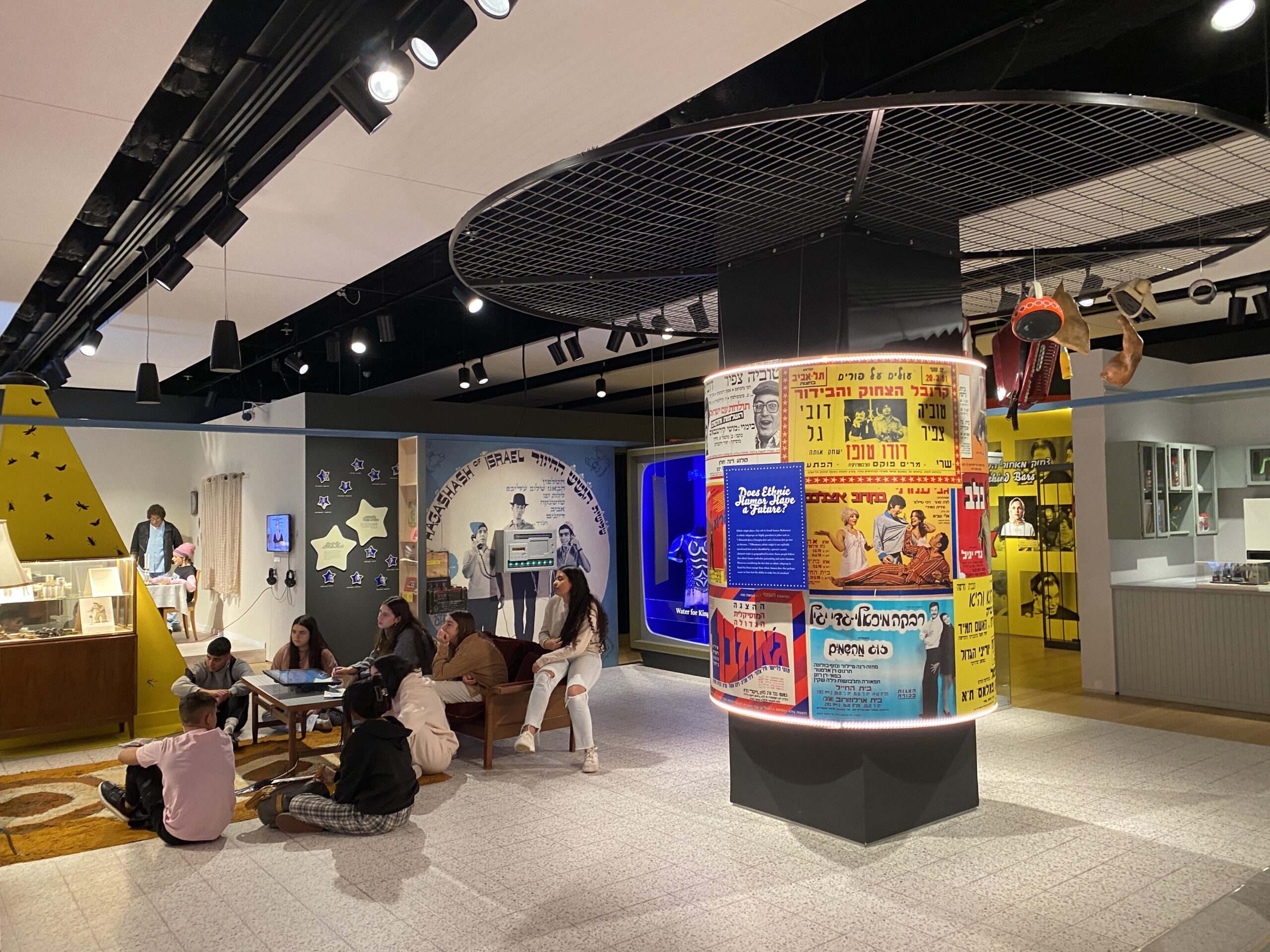
One of the most impressive destinations in Tel Aviv, meanwhile, is ANU – Museum of the Jewish People at Tel Aviv University. While it has been a beloved institution for over four decades, additions introduced in March 2021 including interactive installations, cutting-edge animation, and Hollywood-caliber video productions–bring greater depth to the subject of Jewish multiculturalism and contributions to world history sure to generate insightful conversations regardless of each visitor’s religious affiliation. The permanent and temporary exhibits not only remind visitors from all walks of life about the Jewish contribution to commerce, finance, popular culture, the arts, and even elements of everyday life but prove to be uplifting.
Although the ancient sectors of Jerusalem and Tel Aviv are always cultural scenes in Israel’s city, alive with interesting small museums, high-end galleries, craft fairs, trendy districts awash with antique shops, jewelry ateliers, and thought-provoking street art. Be Tel Aviv Tours’s Street Art & Graffiti walk sheds light on the art in the Florentin neighborhood’s most impactful artists, murals, and public art. What makes this tour more fun, however, is that participants can leave their mark in Florentin with an interactive graffiti art activity, purchase works by some of these artists in the Michaelson Gallery shop, and test out apps that bring some of the murals to life.
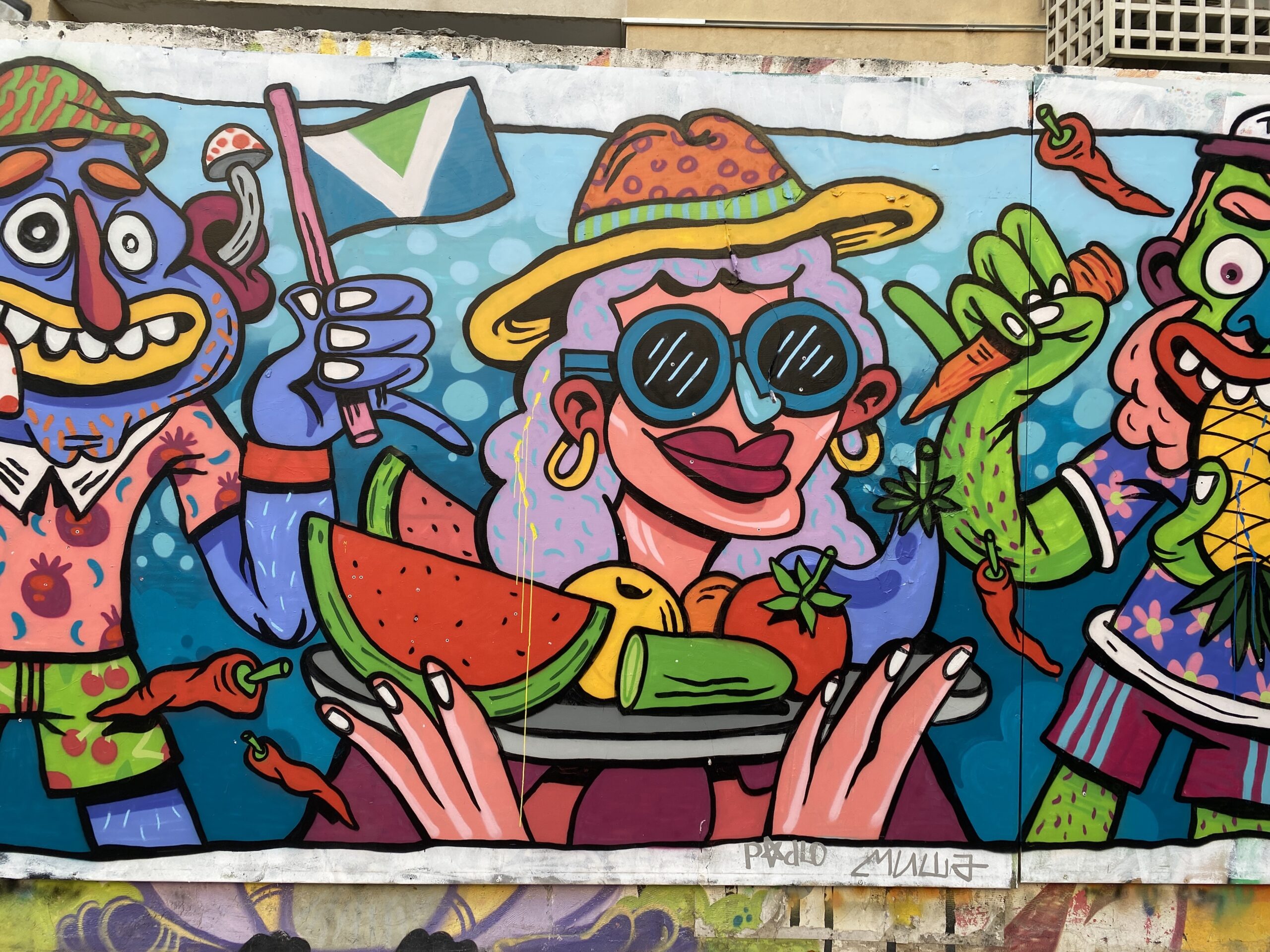
Food tours are a mainstay for corporate groups, and there are plenty of them being offered by different companies introducing visitors to Tel Aviv’s major local markets, including Carmel Market, Tel Aviv Port Market, Hatikva, and Levinsky. Some of the raw materials sold at these markets, in turn, end up in the kitchens of Sarona Market, a nicely manicured emporium offering sushi, Italian pasta, seafood, French bistro cuisine, Moroccan sandwiches, and Portuguese-style chicken. While it has its own food tour, the Sarona Market is also a good go-to place for groups populated with people with different tastes and dietary needs.
There are also numerous places that offer a cozy space for informal business dinners while providing much coveted local flavor. North Abraxas is one of the newest Eyal Shani restaurants and will be of particular interest to both New Yorkers (his outposts there include Miznon, Shmone, HaSalon, and Naked Tomato) and frequent travelers (with restaurants in Singapore, Miami, Cannes, Ibiza, Dubai, and Vienna). North Abraxas is worth a visit alone for its witty menu describing dishes that deliver on the chef’s reputation. Seafood restaurant Manta Ray, another local institution, is revered by locals for its lavish breakfasts, updated decor, and superb Mediterranean sea beach views. This menu serves up a wonderful balance of simplicity and innovation. Porter & Sons could be in any U.S. city with its gastropub décor and a menu dominated by classics such as mac-and-cheese, burgers, charcuterie plates, steaks, German sausages, and a few unexpected ideas borrowed from Ashkenazi Jewish grandmothers. Its beer selection mixing European, North American, and Israeli beer is impressive.
While Tel Aviv lives up to its nickname as the “White City,” which includes many striking four- and five-star hotels, the freshly-opened five-star David Kempinski Tel Aviv is a stunner. In addition to incredible views of the beaches and boardwalks the sprawling urban landscape, it is appointed with plush and modern rooms, elegant one-of-a-kind presidential and premium suites, The Common (the hotel’s mixology and whiskey destination), and Sereia Restaurant with its full-on beachfront and sunset views. However, guests booked in the top rooms get access to the penthouse-level Horizon Lounge, with awe-inspiring scenery, welcoming décor, impeccable service, business perks, and more.
Sand, Salt, and Stars
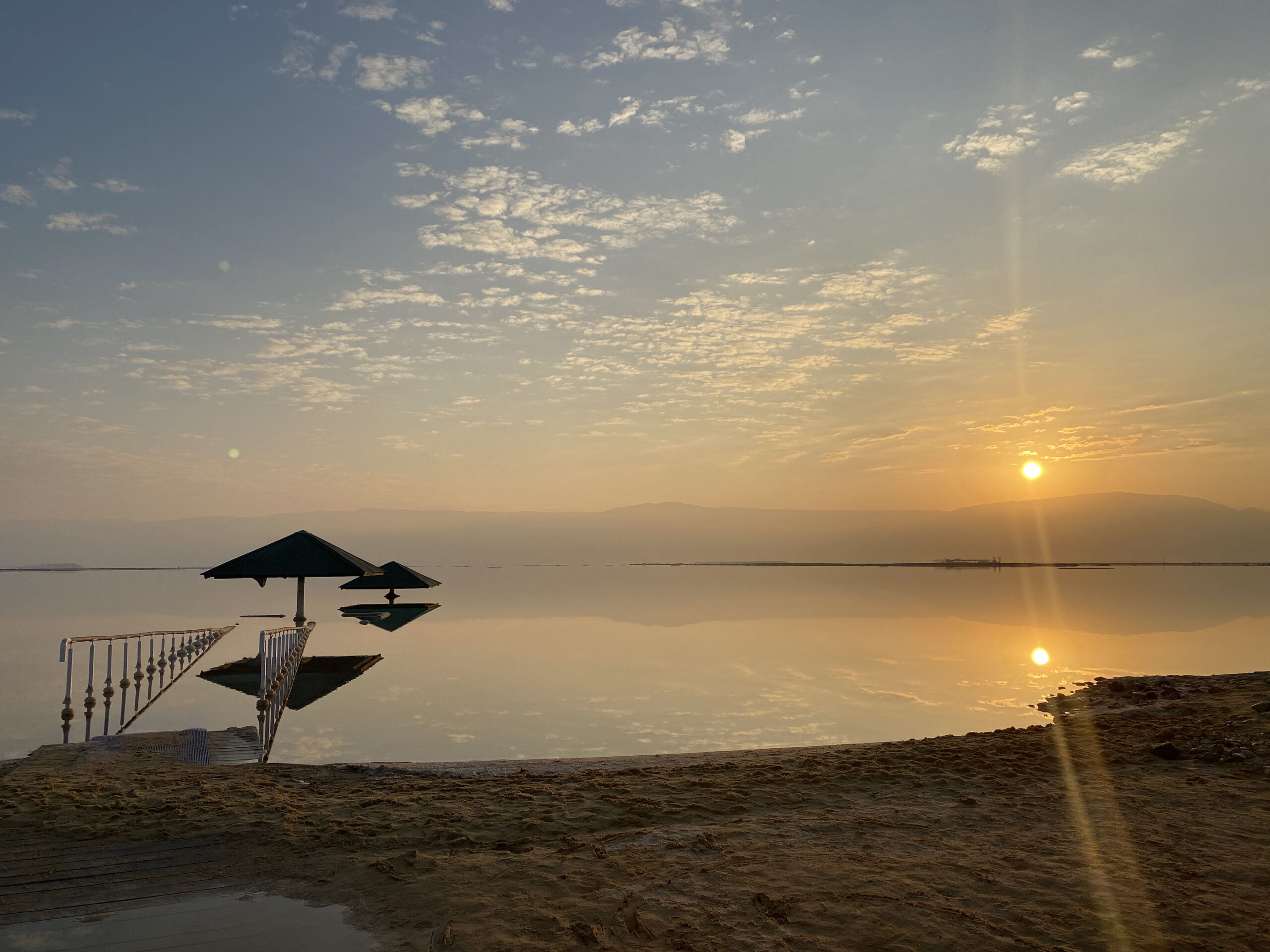 While the Dead Sea is a popular resort destination among Israelis and international travelers (we recommend Isrotel Nevo Dead Sea Hotel & Spa, for the quality of its food, accommodations, business amenities, and the approachability of the staff), it wouldn’t be what it is without industrial pioneer Moshe Novomeysky. He studied the potential of the Dead Sea as a source of minerals and chemicals for industrial use and eventually convinced other Jews to move to the area to help build Israel from the ground up…and down. The Moshe Novomeysky Dead Sea Visitor Center, which opened in late 2021, consists of restored industrial facilities, a commercial building, a dining room, and a living compound. However, virtual reality technology (goggles and interactive elements) ties everything together while recasting each visitor as a witness to history as Novomyeski and others brought the Dead Sea, the “Palestinian Potash Company Site” (operating between the 1930s and 1950s), and the foundation of Israel’s economy to fruition.
While the Dead Sea is a popular resort destination among Israelis and international travelers (we recommend Isrotel Nevo Dead Sea Hotel & Spa, for the quality of its food, accommodations, business amenities, and the approachability of the staff), it wouldn’t be what it is without industrial pioneer Moshe Novomeysky. He studied the potential of the Dead Sea as a source of minerals and chemicals for industrial use and eventually convinced other Jews to move to the area to help build Israel from the ground up…and down. The Moshe Novomeysky Dead Sea Visitor Center, which opened in late 2021, consists of restored industrial facilities, a commercial building, a dining room, and a living compound. However, virtual reality technology (goggles and interactive elements) ties everything together while recasting each visitor as a witness to history as Novomyeski and others brought the Dead Sea, the “Palestinian Potash Company Site” (operating between the 1930s and 1950s), and the foundation of Israel’s economy to fruition.
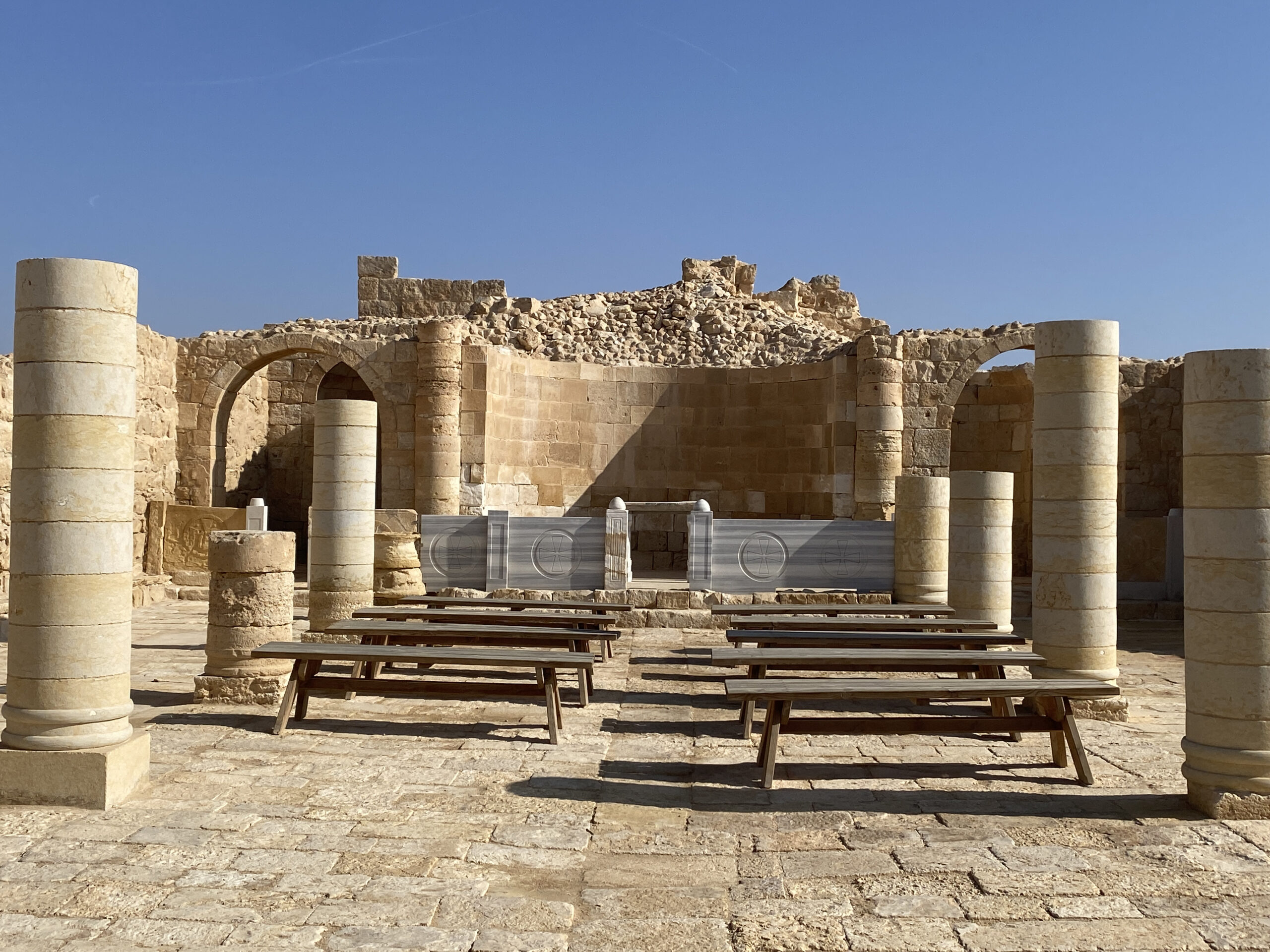
Avdat National Park, which also received several upgrades during the pandemic, is one of the most dynamic UNESCO sites as the preserved remains cover several civilizations. Key sites include a Roman burial cave, two Byzantine churches and a bathhouse, and a city fortress, Modern art metal renderings of nomadic tribes provide extra context and a suggestion of what the area may have been like during the height of the “Spice Road” Nabataean caravans between the third and second centuries B.C. In the nearby town of Yerucham, two galleries, Studio Suit-Case and Studio Zuak, offer hands-on art classes that also touch on the importance of sustainability and the reuse of resources.
Alen Gafni, the founder of Negevland Tours, is one of the desert’s most successful tour operators because it has allowed more visitors to explore the terrain (via Jeep tours), get an adrenaline lift (biking and hikes), stargaze, and taste the bounty of its soils (wine and olive oil tours) in Mitzpe Ramon, Ramon Crater, Nahal Tzin Springs, and the Eilat Mountain Reserve. Gafni, however, is particularly proud of his “geological safari” in the Ramon Crater, which takes shape as a multi-dimensional periodic table of elements that, “helped Israel grow into a self-sufficient nation as these resources were sourced for building infrastructure, buildings, and industries, and so on. Oenophiles and foodies, meanwhile, will enjoy a tour of Marom Eshkalot Winery & Farm, whose tours and tastings touch upon millennia-old farming principles that are still valid in the 21st century.
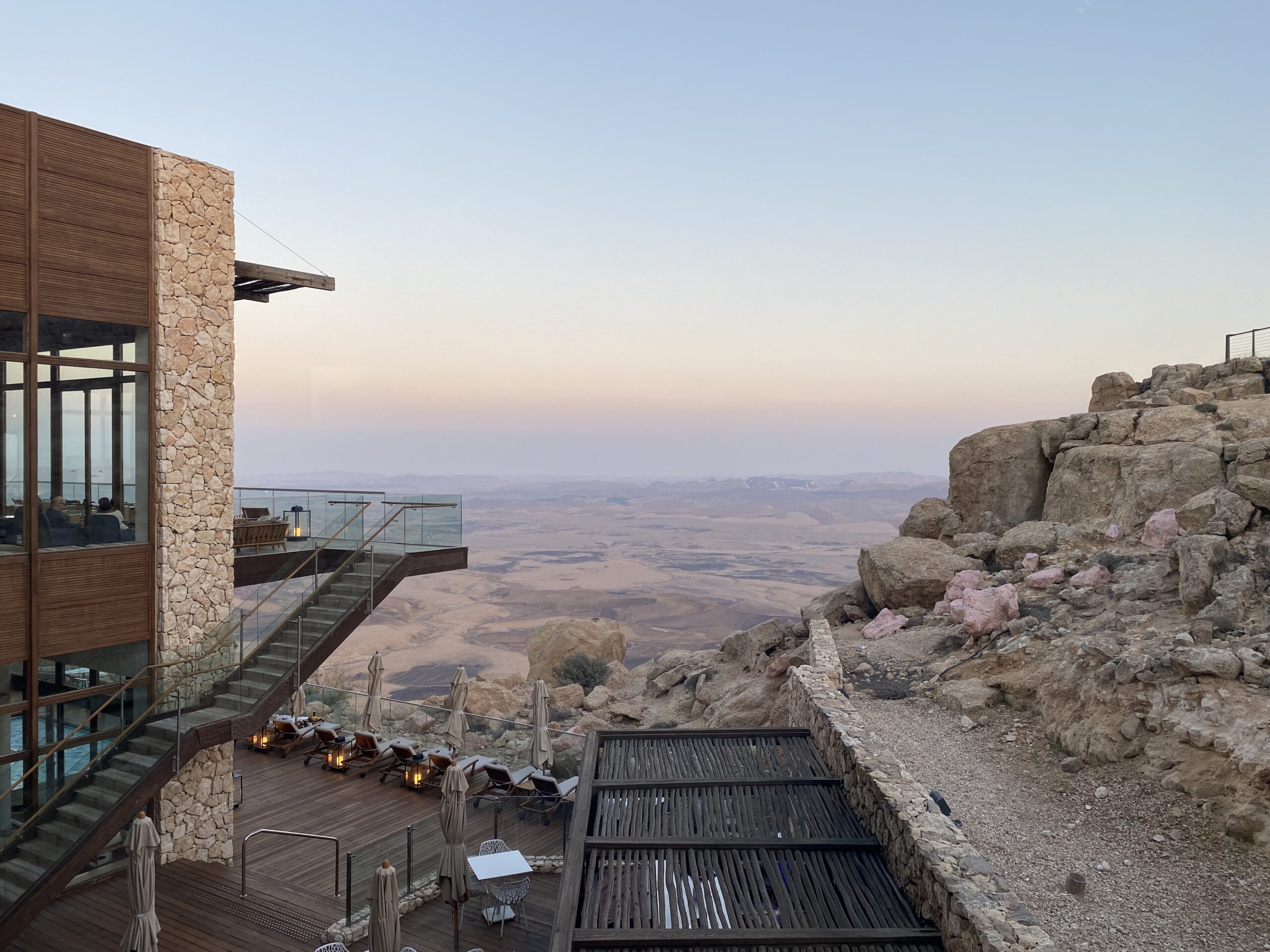
Beresheet Resort & Spa (opened 2011) is still a standard bearer among five-star resorts in Israel with its monumental construction creating an illusion of it being carved into the Negev’s cliffs. It is a self-contained property with breathtaking meeting spaces and an impressive menu of desert adventure, spa, wellness, and cultural activities. Its interiors could be described as “desert village” chic and its food offerings (particularly its breakfast) are amazing.
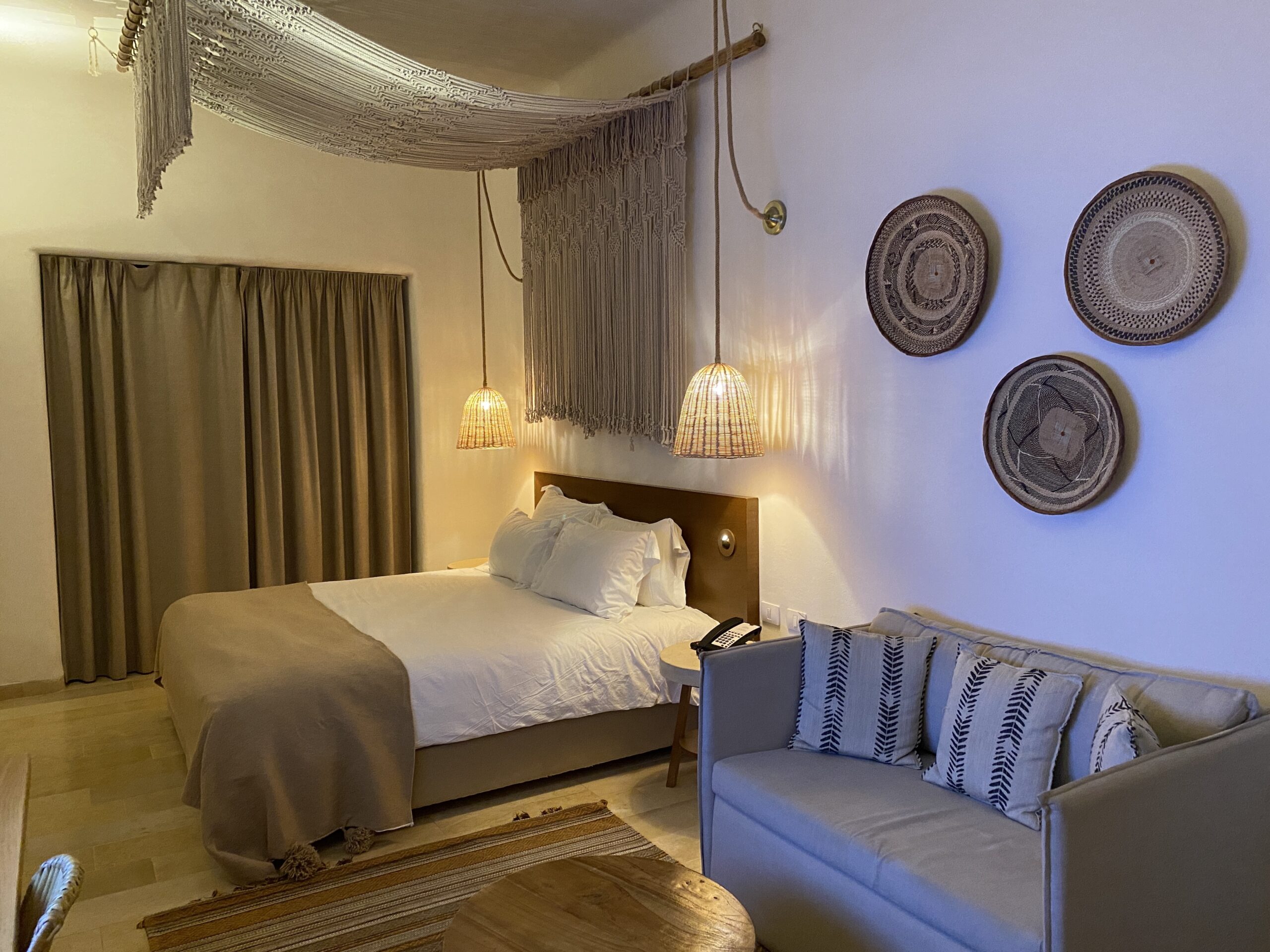
Sister property KEDMA, which opened in 2022, is smaller in scale but captures the natural and historic spirit of its surroundings just as effectively. Visually referencing the surviving Nabatean, Roman, and Byzantine structures within Avdat National Park while being easier to navigate on its single level. Its dinner buffet is exceptional, especially the meat dishes with warm and flavorful seasonings and flawless execution. Like Beresheet, it also features a bar showcasing local and traditional entertainment and expert mixology. Some distinguishing features of Kedma include its being within walking distance of the Sde Boker Winery (operated by California Bay Area native Zvi Remak) and David Ben Gurion’s desert home.
Post Conference Chill-Out ideas
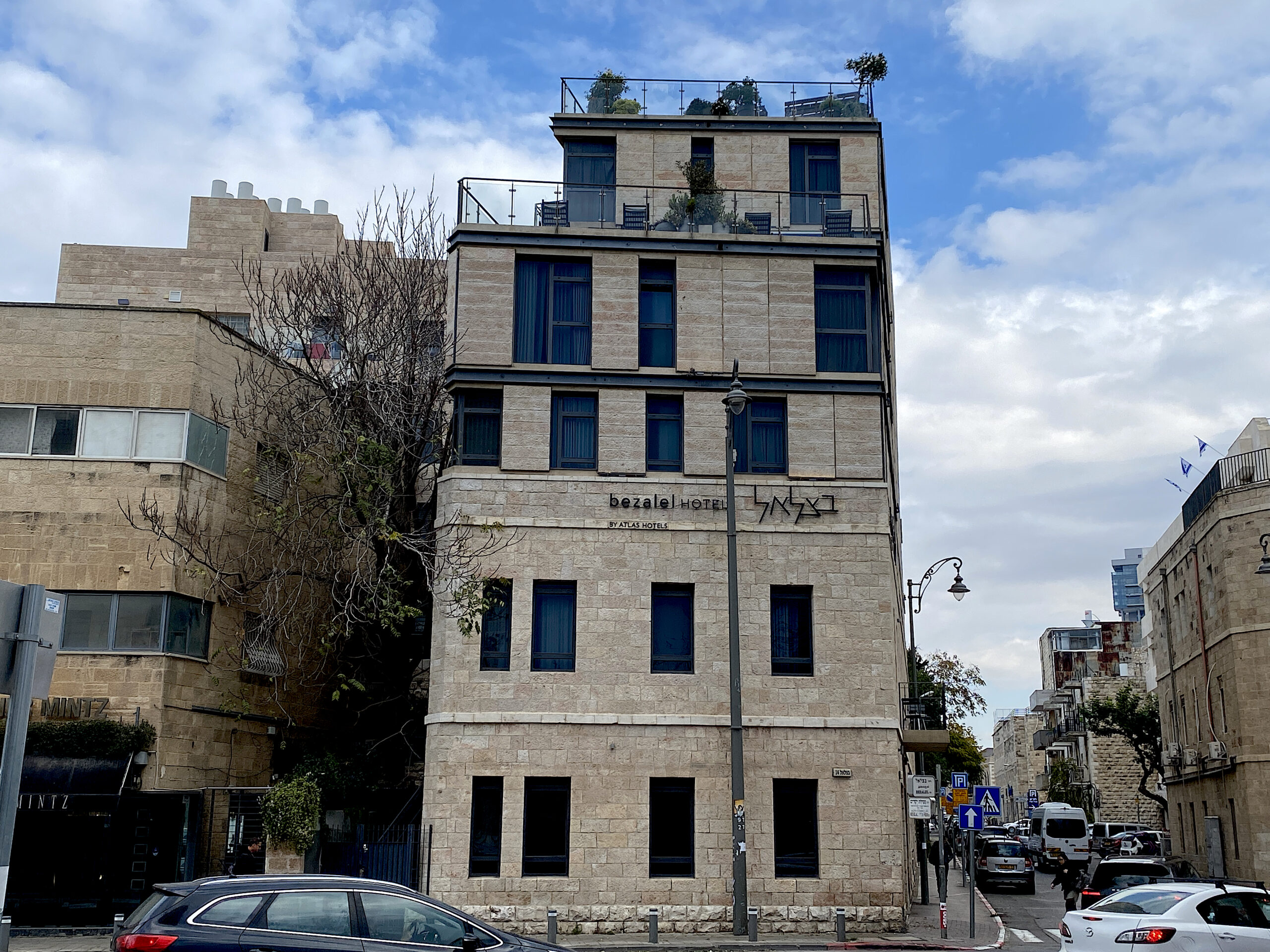
If you plan to add post-conference time in Jerusalem, check into the cozy and welcoming Bezalel Hotel, which merges elements of a boutique hotel and a private home rental. Nice touches include fresh espresso and hand-crafted chocolates from area producer Gostel on check-in and abundant breakfast in the stylish library-style lounge with homemade hummus, baba ganoush, salads, squeezed juices, and Middle Eastern pastries on a par with some of Israel’s five-star resorts.
At the Savoy Seaside Hotel, guests with the “bed-and-breakfast” option can enjoy an impressive morning meal in its lounge or on the adjoining patio. The server brings an impressive “set,” including a bread basket (make sure the soft pretzel roll is included), green salad, cheese plate, hummus, labneh (soft cheese), and juice–all before she brings coffee and takes your egg order. There is also a compact selection of grab-and-go pastries and small sandwiches. Both properties also offer their twist on happy hour with Israeli wines.
Visit Israel
israel.travel
Visit Tel Aviv
visit.tel-aviv.gov.il
The Official Jerusalem Tourism Website
itraveljerusalem.com



